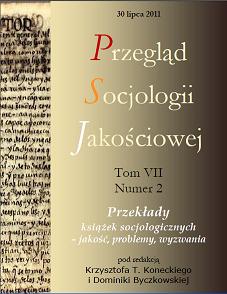Twórczość poetycka i społecznie ustanawiana rzeczywistość. Platońskie Arystotelejskie ujęcie motywów pragmatycznych w greckiej literaturze pięknej
Poetic Expression and Human Enacted Realities: Plato and Aristotle Engage Pragmatist Motifs in Greek Fictional Representations
Author(s): Robert PrusSubject(s): Social Sciences
Published by: Uniwersytet Łódzki - Wydział Ekonomiczno-Socjologiczny
Keywords: Poetics; Fiction; Classical Greek; Plato; Aristotle; Pragmatism; Symbolic Interaction; Representation; Reality; Literary Criticism
Summary/Abstract: Poetic expressions may seem somewhat removed from a pragmatist social science, but the history of the development of Western civilization is such that the (knowingly) fictionalized renderings of human life-worlds that were developed in the classical Greek era (c700-300BCE) appear to have contributed consequentially to a scholarly emphasis on the ways in which people engage the world. Clearly, poetic writings constitute but one aspect of early Greek thought and are best appreciated within the context of other developments in that era, most notably those taking shape in the realms of philosophy, religion, rhetoric, politics, history, and education. These poetic materials (a) attest to views of the human condition that are central to a pragmatist philosophy (and social science) and (b) represent the foundational basis for subsequent developments in literary criticism (including theory and methods pertaining to the representation of human enacted realities in dramaturgical presentations). Thus, while not reducing social theory to poetic representation, this statement considers the relevance of early Greek poetics for the development of social theory pertaining to humanly enacted realities.
Journal: Przegląd Socjologii Jakościowej
- Issue Year: VII/2011
- Issue No: 2
- Page Range: 111-138
- Page Count: 27
- Language: Polish

